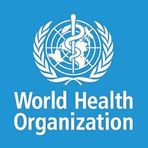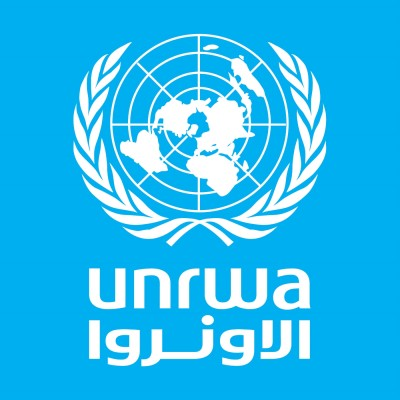The Humanitarian Crisis in Gaza: A Call for Action
October 23, 2024, 10:24 pm

Location: Switzerland, Geneva, Chambésy
Employees: 5001-10000
Founded date: 1948
The situation in Gaza is dire. The air is thick with despair. Hospitals are overwhelmed. The streets are littered with bodies. Humanitarian aid is a trickle, while the need is a flood. The United Nations Relief and Works Agency (UNRWA) paints a grim picture. People are trapped in a nightmare, struggling for survival.
Israeli authorities continue to block humanitarian missions from reaching northern Gaza. The head of UNRWA, Philippe Lazzarini, highlights the catastrophic conditions. Hospitals are without power. Injured individuals lie unattended. Shelters overflow, forcing some to seek refuge in toilets. This is not just a crisis; it’s a humanitarian catastrophe.
Reports indicate that those attempting to flee are met with violence. Bodies are left in the streets, a haunting reminder of the ongoing conflict. Rescue missions are denied, leaving many trapped under rubble. The cries for help echo in the silence of indifference.
Israel asserts it is delivering humanitarian supplies. Yet, the reality on the ground tells a different story. Airdrops and land deliveries are insufficient. The need is overwhelming, and the response is inadequate. The UN agency insists that access to aid is essential. Denying assistance for military purposes is a moral failure.
The situation escalates as Israel intensifies its military offensive. The aim is to dismantle Hamas's capabilities. But at what cost? Civilians bear the brunt of this conflict. The ongoing air and ground assaults leave destruction in their wake. The northern region of Gaza, particularly Jabalia, has become a battleground.
The U.S. Secretary of State, Antony Blinken, recently emphasized the urgency of ending the conflict. He urges Israel to avoid further escalation with Iran. The stakes are high. The region is a powder keg, with tensions simmering between Israel, Hamas, and Hezbollah. Blinken’s call for peace is a glimmer of hope amid the chaos.
Yet, the reality is grim. Thousands of civilians are trapped in the crossfire. The only functioning medical facility in northern Gaza is running on empty. The director of Kamal Adwan Hospital warns of a lack of medicine and supplies. People are dying in the streets, unable to receive care. The World Health Organization has had to halt critical vaccination drives due to the violence.
UNRWA faces its own tragedies. Another aid worker has been killed, a casualty of the ongoing conflict. The loss of life among those trying to help is a stark reminder of the dangers on the ground. The humanitarian crisis deepens, and the world watches in silence.
As the conflict rages, the international community must act. The U.S. has a unique role to play. Blinken’s upcoming visits to Saudi Arabia and Qatar are crucial. Normalization talks with Saudi Arabia hinge on the creation of a Palestinian state. This is a pivotal moment. The U.S. must leverage its influence to foster dialogue and peace.
The humanitarian situation cannot be ignored. The displaced population in Lebanon is also staggering. Over 800,000 people are internally displaced, fleeing violence and instability. The International Organization for Migration reports a growing crisis. The ripple effects of the Gaza conflict extend beyond its borders.
Hezbollah remains active, retaliating against Israeli strikes. The group’s attacks on Israeli military positions escalate tensions further. The cycle of violence continues, with no end in sight. Each strike leads to retaliation, creating a vicious cycle.
The need for a ceasefire is urgent. It is the first step toward healing. Humanitarian access must be prioritized. Aid must flow freely to those in need. The international community must unite to demand an end to hostilities.
The situation in Gaza is a test of our collective humanity. We cannot turn a blind eye. The images of suffering are seared into our consciousness. Each day without action is a day too many. The world must respond with urgency and compassion.
In conclusion, the humanitarian crisis in Gaza is a call to action. The suffering is palpable. The need for aid is critical. The international community must rise to the occasion. The time for dialogue and peace is now. We must advocate for those who cannot advocate for themselves. The future of Gaza hangs in the balance. It is time to act.
Israeli authorities continue to block humanitarian missions from reaching northern Gaza. The head of UNRWA, Philippe Lazzarini, highlights the catastrophic conditions. Hospitals are without power. Injured individuals lie unattended. Shelters overflow, forcing some to seek refuge in toilets. This is not just a crisis; it’s a humanitarian catastrophe.
Reports indicate that those attempting to flee are met with violence. Bodies are left in the streets, a haunting reminder of the ongoing conflict. Rescue missions are denied, leaving many trapped under rubble. The cries for help echo in the silence of indifference.
Israel asserts it is delivering humanitarian supplies. Yet, the reality on the ground tells a different story. Airdrops and land deliveries are insufficient. The need is overwhelming, and the response is inadequate. The UN agency insists that access to aid is essential. Denying assistance for military purposes is a moral failure.
The situation escalates as Israel intensifies its military offensive. The aim is to dismantle Hamas's capabilities. But at what cost? Civilians bear the brunt of this conflict. The ongoing air and ground assaults leave destruction in their wake. The northern region of Gaza, particularly Jabalia, has become a battleground.
The U.S. Secretary of State, Antony Blinken, recently emphasized the urgency of ending the conflict. He urges Israel to avoid further escalation with Iran. The stakes are high. The region is a powder keg, with tensions simmering between Israel, Hamas, and Hezbollah. Blinken’s call for peace is a glimmer of hope amid the chaos.
Yet, the reality is grim. Thousands of civilians are trapped in the crossfire. The only functioning medical facility in northern Gaza is running on empty. The director of Kamal Adwan Hospital warns of a lack of medicine and supplies. People are dying in the streets, unable to receive care. The World Health Organization has had to halt critical vaccination drives due to the violence.
UNRWA faces its own tragedies. Another aid worker has been killed, a casualty of the ongoing conflict. The loss of life among those trying to help is a stark reminder of the dangers on the ground. The humanitarian crisis deepens, and the world watches in silence.
As the conflict rages, the international community must act. The U.S. has a unique role to play. Blinken’s upcoming visits to Saudi Arabia and Qatar are crucial. Normalization talks with Saudi Arabia hinge on the creation of a Palestinian state. This is a pivotal moment. The U.S. must leverage its influence to foster dialogue and peace.
The humanitarian situation cannot be ignored. The displaced population in Lebanon is also staggering. Over 800,000 people are internally displaced, fleeing violence and instability. The International Organization for Migration reports a growing crisis. The ripple effects of the Gaza conflict extend beyond its borders.
Hezbollah remains active, retaliating against Israeli strikes. The group’s attacks on Israeli military positions escalate tensions further. The cycle of violence continues, with no end in sight. Each strike leads to retaliation, creating a vicious cycle.
The need for a ceasefire is urgent. It is the first step toward healing. Humanitarian access must be prioritized. Aid must flow freely to those in need. The international community must unite to demand an end to hostilities.
The situation in Gaza is a test of our collective humanity. We cannot turn a blind eye. The images of suffering are seared into our consciousness. Each day without action is a day too many. The world must respond with urgency and compassion.
In conclusion, the humanitarian crisis in Gaza is a call to action. The suffering is palpable. The need for aid is critical. The international community must rise to the occasion. The time for dialogue and peace is now. We must advocate for those who cannot advocate for themselves. The future of Gaza hangs in the balance. It is time to act.
